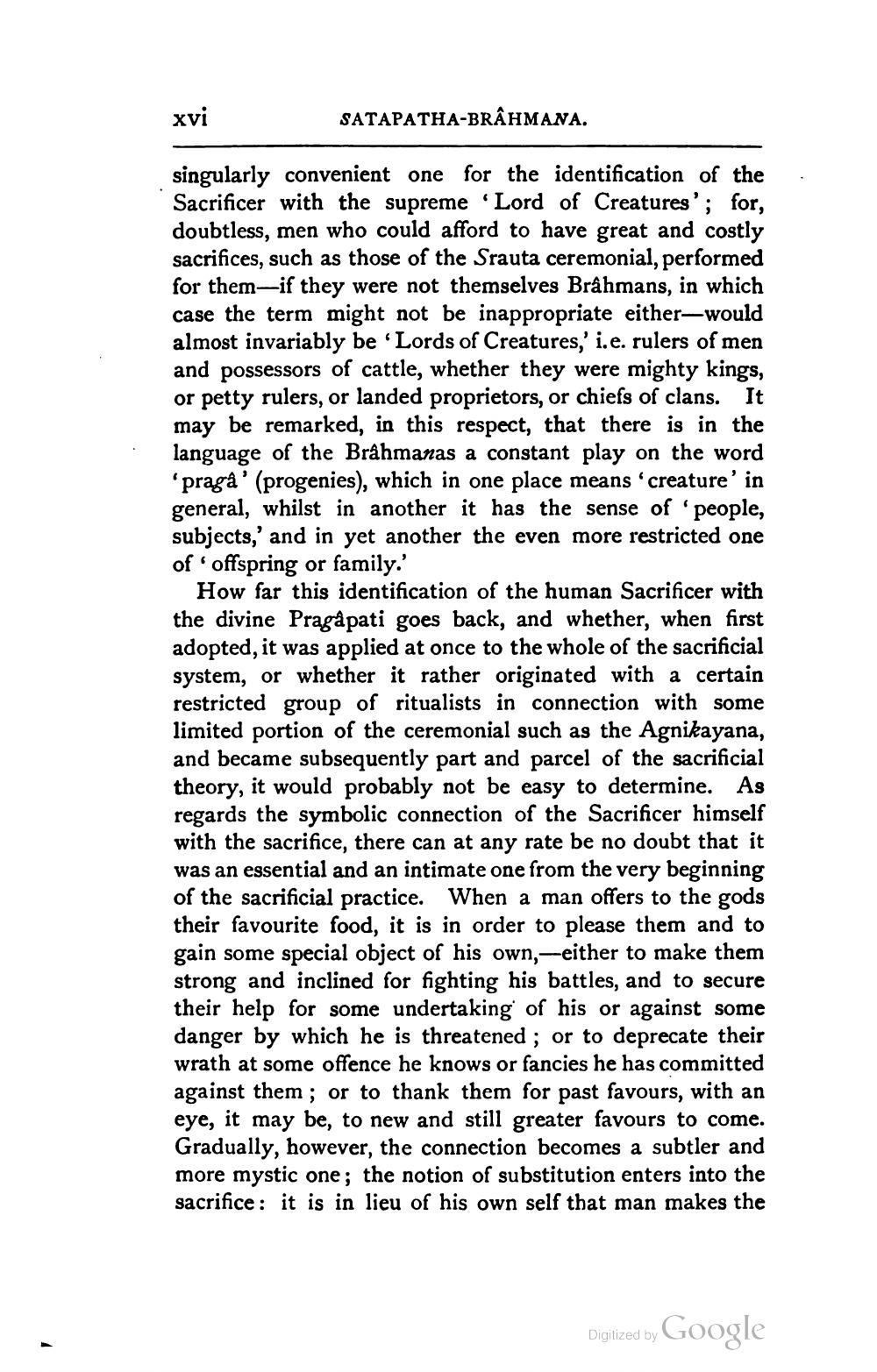________________
xvi
SATAPATHA-BRÂHMANA.
singularly convenient one for the identification of the Sacrificer with the supreme Lord of Creatures'; for, doubtless, men who could afford to have great and costly sacrifices, such as those of the Srauta ceremonial, performed for them if they were not themselves Brâhmans, in which case the term might not be inappropriate either-would almost invariably be 'Lords of Creatures,' i.e. rulers of men and possessors of cattle, whether they were mighty kings, or petty rulers, or landed proprietors, or chiefs of clans. It may be remarked, in this respect, that there is in the language of the Brahmanas a constant play on the word
prąga' (progenies), which in one place means 'creature' in general, whilst in another it has the sense of people, subjects,' and in yet another the even more restricted one of offspring or family.'
How far this identification of the human Sacrificer with the divine Pragå pati goes back, and whether, when first adopted, it was applied at once to the whole of the sacrificial system, or whether it rather originated with a certain restricted group of ritualists in connection with some limited portion of the ceremonial such as the Agnikayana, and became subsequently part and parcel of the sacrificial theory, it would probably not be easy to determine. As regards the symbolic connection of the Sacrificer himself with the sacrifice, there can at any rate be no doubt that it was an essential and an intimate one from the very beginning of the sacrificial practice. When a man offers to the gods their favourite food, it is in order to please them and to gain some special object of his own,-either to make them strong and inclined for fighting his battles, and to secure their help for some undertaking of his or against some danger by which he is threatened ; or to deprecate their wrath at some offence he knows or fancies he has committed against them; or to thank them for past favours, with an eye, it may be, to new and still greater favours to come. Gradually, however, the connection becomes a subtler and more mystic one; the notion of substitution enters into the sacrifice: it is in lieu of his own self that man makes the
Digitized by Google




